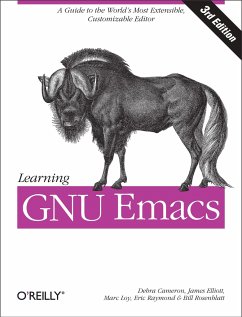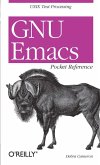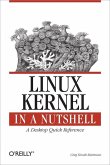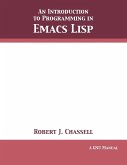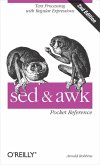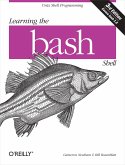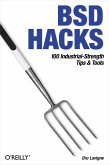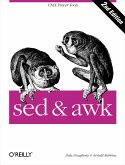GNU Emacs is the most popular and widespread of the Emacs family of editors. It is also the most powerful and flexible. Unlike all other text editors, GNU Emacs is a complete working environment--you can stay within Emacs all day without leaving. Learning GNU Emacs, 3rd Edition tells readers how to get started with the GNU Emacs editor. It is a thorough guide that will also "grow" with you: as you become more proficient, this book will help you learn how to use Emacs more effectively. It takes you from basic Emacs usage (simple text editing) to moderately complicated customization and programming.The third edition of Learning GNU Emacs describes Emacs 21.3 from the ground up, including new user interface features such as an icon-based toolbar and an interactive interface to Emacs customization. A new chapter details how to install and run Emacs on Mac OS X, Windows, and Linux, including tips for using Emacs effectively on those platforms.Learning GNU Emacs, third edition, covers:
How to edit files with Emacs
Using the operating system shell through Emacs
How to use multiple buffers, windows, and frames
Customizing Emacs interactively and through startup files
Writing macros to circumvent repetitious tasks
Emacs as a programming environment for Java, C++, and Perl, among others
Using Emacs as an integrated development environment (IDE)
Integrating Emacs with CVS, Subversion and other change control systems for projects with multiple developers
Writing HTML, XHTML, and XML with Emacs
The basics of Emacs Lisp
The book is aimed at new Emacs users, whether or not they are programmers. Also useful for readers switching from other Emacs implementations to GNU Emacs.
Hinweis: Dieser Artikel kann nur an eine deutsche Lieferadresse ausgeliefert werden.
How to edit files with Emacs
Using the operating system shell through Emacs
How to use multiple buffers, windows, and frames
Customizing Emacs interactively and through startup files
Writing macros to circumvent repetitious tasks
Emacs as a programming environment for Java, C++, and Perl, among others
Using Emacs as an integrated development environment (IDE)
Integrating Emacs with CVS, Subversion and other change control systems for projects with multiple developers
Writing HTML, XHTML, and XML with Emacs
The basics of Emacs Lisp
The book is aimed at new Emacs users, whether or not they are programmers. Also useful for readers switching from other Emacs implementations to GNU Emacs.
Hinweis: Dieser Artikel kann nur an eine deutsche Lieferadresse ausgeliefert werden.

